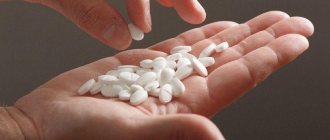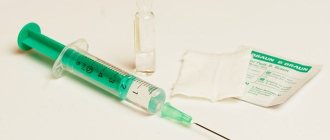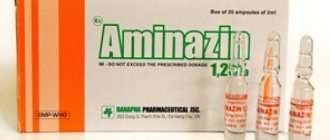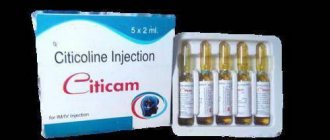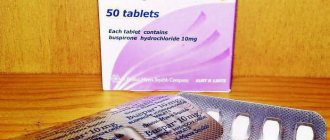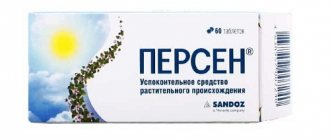How to take the product?
For best results, consultation with a doctor is advisable. But due to the safety of these tablets, patients often manage their own treatment. Its diagram is something like this:
- PA of moderate severity, accompanied by sleep and performance disorders (physical and mental): 1 tablet three times a day.
- Mild PA with lethargy and depressed mood: 1 tablet twice a day.
- PAs that tend to occur at night: 1 tablet 20-30 minutes before bedtime.
Ideally, the course of treatment with Glycine should last up to 1 month. 5-6 such courses can be conducted per year. The active substance is best absorbed sublingually. If you chew the tablets and then wash them down with water, the effect may not occur at all. With proper treatment, many patients manage to reduce the severity and frequency of panic attacks.
For the treatment of vegetative-vascular dystonia, a symptom complex that includes various disorders in the functioning of internal organs, drugs are used to treat neurosis, which is considered the cause of the development of VSD. If a vascular crisis develops, which often occurs with VSD, it is recommended to have the drugs Corvalol and Valocordin with you.
- adaptogens;
- sedatives;
- tranquilizers;
- neuroleptics;
- hypnotic;
- antidepressants;
- nootropics;
- vegetotropic;
- antihypertensive drugs;
- vitamins.
Analogs and derivatives
There are several derivatives of Glycine. In fact, they all have the same active ingredient; the differences lie in the dosage of the drug. So, 1 tablet of Glycine Fortes contains 250 mg of glycine, and Glycine-Canon – 1000 mg.
Considering that the state of the nervous system suffers with VSD, doctors recommend, in parallel with glycine, taking multivitamins based on B vitamins. They help restore the functioning of the central and peripheral nervous system, balance the processes of inhibition and excitation, and improve the passage of nerve impulses. They normalize the functioning of the muscular system, participate in the synthesis of amino acids, neurotransmitters and nucleic acids.
Of these drugs, the most famous are Pentovit and Neuromultivit.
| Comparative characteristics | |||
| A drug | Compound | Mode of application | Well |
| Pentovit | vitamin B1–10 mg; vitamin B6–5 mg; vitamin B12–0.05 mg; folic acid; nicotinamide; | 2–4 tablets 2–3 times/day after meals | 1 month |
| Neuromultivitis | vitamin B1–100 mg; vitamin B6–200 mg; vitamin B12–0.2 mg | 1 tablet 1 time/day | 1 month |
According to reviews, the combination of Glycine + Neuromultivit definitely gives a positive result. Users note that anxiety goes away, concentration increases and performance improves. It is possible to get rid of irritability and depression.
Multivitamins are contraindicated for children, pregnant women and lactation. For this treatment regimen, there is an alternative - the drug Glycine-Vis. This is a complex product that includes Glycine and vitamins B1, B6, B12.
Glycine analogues include phenotropil, tryptophan, piracetam, mexidol. They also belong to nootropic drugs, but their effect manifests itself a little differently, so they will not fully replace glycine.
Glycine is an effective remedy, but there are times when it cannot cope alone. Therefore, doctors prescribe other medications to complement it. For example, picamilon, spasmalgon, banal Corvalol and valerian.
Who should prescribe treatment
When a person begins to have panic attacks, the first doctor he turns to is a cardiologist, therapist or neurologist. But the causes of the disease lie in a completely different area, and these specialists cannot find disorders in the patient that would correspond to his complaints. Panic attacks are treated by psychiatrists or psychotherapists.
Also, if you have panic attacks, you should not turn to psychologists. They do not have medical training and cannot recognize the symptoms of other diseases that may accompany panic disorder. They also do not have the right to prescribe medications.
When panic attacks (PA) occur, a person in most cases turns to a therapist, neurologist or cardiologist. But the circumstances of the disease are in a completely different area, and such experts may not find in the patient those disorders that correspond to his complaints.
Psychotherapists or psychiatrists treat panic attacks.
In case of panic attacks, it is not recommended to turn to psychologists, because they do not have medical education, and they are not able to identify the symptoms of other diseases that may accompany such disorders. In addition, they do not have the right to prescribe medications.
Treatment methods for panic attacks are selected only by the attending physician; self-administration of drugs is fraught with serious complications and the development of side effects.
To treat panic attacks use:
- nootropic drugs;
- antidepressants;
- tranquilizers;
- sedatives;
- neuroleptics;
- vitamin complexes.
Nootropic drugs are prescribed to improve brain function. These drugs are often prescribed after a stroke and for vascular pathologies. Nootropic medications help improve blood supply to the brain and increase intellectual abilities in neurological disorders. As a treatment for panic attacks, nootropic drugs are used in conjunction with other medications to enhance their effect.
Antidepressants help normalize sleep and get rid of nervous tension. These medications help normalize the functioning of the nervous system and relieve anxiety and nervousness.
The disadvantage of treatment with antidepressants is the duration of the course, which reaches 10-12 months. The drugs have a number of side effects and are also addictive.
Tranquilizers depress the nervous system, thereby having the effect of relieving a panic attack. These medications help get rid of accompanying symptoms - increased sweating, disorientation, asthma attacks and tachycardia. The drugs are very strong and addictive. After stopping tranquilizers, the opposite effect often occurs, which will require additional therapy to get rid of.
Sedatives are weak sedatives, usually of plant origin. On their own, these drugs are not strong enough to cure panic attacks, so they are prescribed together with other medications to normalize sleep and reduce anxiety. The advantage of such drugs is their relative safety and minimal side effects.
The doctor may also prescribe antipsychotics. These medications are used to treat severe mental disorders accompanied by hallucinations, nervous excitability, fear and psychomotor disorders. Drugs in this group help minimize the symptoms of autonomic disorder.
Along with medications, vitamin supplements and mineral complexes are often prescribed to treat panic attacks. This helps strengthen the nervous system and improve immunity. Magnesium supplements and B vitamins are often prescribed.
"Glycine" is one of the most popular light tranquilizers. This medicine is prescribed for the treatment of a number of diseases accompanied by emotional instability, excitability and sleep disorders.
“Glycine” helps get rid of feelings of fear and causeless panic, and also relieves associated symptoms - weakness, dizziness, hand tremors and chills. Glycine helps relieve stress.
The main function of the drug "Glycine" is the stimulation of metabolic processes. Thanks to this, the drug does not depress the activity of the nervous system and does not cause drowsiness.
The basis of the drug "Glycine" is aminoacetic acid. This substance is well absorbed and has no toxic effects, since it does not accumulate in the body. The drug is well tolerated and does not cause side effects. Contraindications to the use of the drug are pregnancy and individual intolerance.
Medicines are widely used to treat panic attacks, allowing you to quickly and effectively improve the patient's well-being. However, there are pitfalls here too.
Drugs used to treat neurological problems typically have a number of side effects. An indirect side effect of the use of antidepressants and tranquilizers is a decrease in libido.
Tranquilizers and antidepressants are addictive. You should stop taking these drugs correctly, otherwise, if you suddenly stop taking the pills, withdrawal syndrome will develop. This condition is accompanied by worsening symptoms of neurological and mental disorders.
Sedatives are not addictive, but their effect is often not enough to relieve panic attacks.
In order not to harm your own health, it is not recommended to choose medications on your own without consulting a doctor. The dosage and course of treatment must be selected by a specialist, otherwise side effects may occur.
The best option is to use tranquilizers not for prevention, but during an attack. Which drug to prefer and how to take it - your doctor will tell you about this at your appointment.
It is important to remember that a tranquilizer or antidepressant taken should never be combined with any alcoholic beverages, including beer. A list of contraindications and incompatible drugs is given in the instructions for each medicine.
In addition to medications, breathing practices, exercise and proper nutrition can help get rid of panic attacks. All this together helps strengthen the nervous system and improve the condition of vegetative-vascular dystonia and panic attacks.
When panic attacks (PA) occur, a person usually consults a therapist, neurologist or cardiologist. However, the causes of the disease are in a completely different area, and such specialists may not find in the patient those disorders that correspond to his complaints.
panic attack pills
Psychotherapists or psychiatrists treat panic attacks.
In case of panic attacks, it is not recommended to turn to psychologists, since they do not have medical education, and they are not able to recognize the symptoms of other diseases that may accompany such disorders. They also do not have the right to prescribe medications.
Light formula - serious action
In general, Glycine is famous for its healing effect on brain structures and functions.
The drug literally repairs the brain, restoring damaged cells, improving mental performance. Therefore, schoolchildren and students often take these tablets during intense studies and sessions. But with PA, the process mainly involves the psyche and autonomics, and not mental operations. Therefore, many patients doubt that Glycine will be at least somehow useful. But let's figure it out. Each tablet is 100% aminoacetic acid, an important component needed for proteins and other compounds in our body. This active substance not only heals the brain, but also restores the nervous system, activating its protective functions and regulating cellular metabolism. While restoring damaged cells, aminoacetic acid does not touch healthy tissues. And most importantly, it partially dampens the receptors that respond to adrenaline. This means that by taking Glycine during panic attacks, a person will receive a share of “comfort”; he will again be able to focus on important things and fall asleep without sedatives. With a long treatment course of Glycine, the patient will receive the following benefits:
- aggression and conflict will decline;
- the mood will become better;
- sleep will be deeper and better quality;
- neurotic conditions will smooth out;
- thinking abilities will become higher;
- the desire and energy to do many things will appear.
We recommend that you read: What sedatives will help with VSD?
When the brain works well enough, metabolic processes between cells are established, and the central nervous system is “repaired,” panic attacks lose their intensity and sometimes recede altogether. This is how simple aminoacetic acid controls our condition.
Afobazole
Afobazole has an anxiolytic effect, is able to remove fear and anxiety, and does not have a depressant effect on the central nervous system.
Afobazole does not have muscle relaxant properties, i.e. does not reduce the tone of skeletal muscles, does not affect motor activity.
These tablets do not have a negative effect on attention and memory, and do not form drug dependence.
Afobazole does not contribute to the development of withdrawal syndrome.
This medicine acts in the form of mild stimulating and anti-anxiety effects. Used to eliminate panic attacks.
This medication can reduce the level of anxiety, fear, irritability, and bad feelings. Afobazole also helps relieve tension. All this makes it possible to remove a large number of cognitive, somatic, and vegetative symptoms.
Afobazole shows its effect on the 5-7th day of administration. Its maximum effect is achieved by the end of the 4th week, on average it lasts 1-2 weeks after the use is stopped.
Afobazole is advisable to use for people who have anxious suspiciousness, increased vulnerability, a tendency to emotional stress reactions, and uncertainty. It is often prescribed to treat panic attacks.
Afobazole should be taken from 2 to 4 weeks, sometimes up to 3 months. Tablets are taken orally after meals, 10 mg 3 times a day.
Afobazole is prescribed only to adults.
Contraindications are: hypersensitivity to its components, pregnancy, lactation. In case of overdose, sedation and increased drowsiness can be observed.
Afobazole has an anxiolytic effect, is able to remove horror and anxiety, and does not have a depressant effect on the central nervous system.
Afobazole does not have muscle relaxant properties, i.e. does not reduce the tone of skeletal muscles, does not affect motor activity.
These pills do not have a negative effect on attention and memory, and do not form drug dependence.
Afobazole does not contribute to the formation of withdrawal syndrome.
This medicine has an effect in the form of mild stimulating and anti-anxiety effects. Used to eliminate panic attacks.
This medication can reduce the level of concern, fear, irritability, and bad feelings. Afobazole also helps eliminate tension. All this allows you to remove many cognitive, somatic, and vegetative signs.
Afobazole exhibits its effect on the 5-7th day of administration. Its maximum effect is achieved by the end of the 4th week, on average it lasts 1-2 weeks after the reception is stopped.
Afobazole is advisable to use for people who have anxious suspiciousness, increased vulnerability, a tendency to emotional stress reactions, and uncertainty. Quite often it is prescribed for the treatment of panic attacks.
Afobazole must be taken from 2 to 4 weeks, from time to time - up to 3 months. Pills are taken orally after meals, 10 mg 3 times a day.
Afobazole is prescribed only to adults.
Contraindications are: hypersensitivity to its components, pregnancy, lactation. In case of overdose, you may notice a sedative effect and increased drowsiness.
Afobazole has a selective effect on the patient’s body and is classified as a sedative anxiolytic and tranquilizer. Prescribed for anxiety, stress, sleep disorders, disorders of the autonomic nervous system. According to patient reviews, Afobazole does not affect performance, does not dull emotions, does not reduce the reaction rate, that is, the drug is devoid of most of the side effects that occur with tranquilizers.
Strengthened formula in a new incarnation
Today you can also see the drug Glycine Forte on pharmacy shelves. Is it different from its brother, and how?
The only difference is that tablets labeled “Forte”, in addition to aminoacetic acid, are also saturated with a useful vitamin complex. They are considered a dietary supplement and are more expensive than their non-vitaminized counterpart. According to patient reviews, Glycine Forte during panic attacks creates a more favorable environment for getting rid of crises. Because in addition to repairing the brain and central nervous system, the body is also enriched with vitamins, which is important for immunity and restoration of strength.
We recommend reading: Will Cipralex help with a panic attack?
Atarax
Atarax is an anxiolytic and is prescribed for the treatment of chronic allergic diseases and neuroses. This drug is well tolerated by patients, it has few contraindications and side effects.
Atarax can have a relaxing effect on the internal (smooth) muscles, which helps relieve spasms and helps alleviate the condition during panic attacks.
It does not depress the central nervous system (CNS), but is capable of depressing some areas of the subcortical region.
The main active ingredient is a diphenylmethane derivative – hydroxyzine dihydrochloride.
Atarax has antihistamine and bronchodilator effects and does not affect gastric function in normal doses.
Atarax is also effective in the treatment of eczema, urticaria, itching in various allergic dermatitis, and can increase the total duration of sleep.
They do not cause memory impairment.
Atarax is absorbed quickly in the gastrointestinal tract and quickly enters the blood.
Atarax is used for the symptomatic treatment of itching, symptoms of anxiety, incl. panic attacks. Tablets of this medication are taken orally. Atarax in case of anxiety is recommended to take 0.05 g per day.
Atarax promotes the following side effects:
- headache, decreased blood pressure;
- transient decrease in vision clarity;
- increase in body temperature, general weakness, increased fatigue;
- dry mouth, in some cases - constipation, nausea, vomiting.
Atarax has the following contraindications: hereditary intolerance to galactose, porphyria, hypersensitivity to the components of the drug.
Atarax is contraindicated during pregnancy and breastfeeding.
Atarax enhances its effect when drinking alcohol, reduces the effect of phenytoin and epinephrine.
The results of an overdose of the drug "Atarax" are nausea, vomiting, stimulation or depression of the central nervous system, arrhythmia, hallucinations.
Another effective tranquilizer is the medicine Atarax. It promotes:
- reducing anxiety;
- relieving muscle spasms;
- normalization of the nervous system;
- reducing skin manifestations of allergic reactions.
Features of the drug "Atarax" are its good tolerability. The drug does not depress the activity of the central nervous system and does not cause drowsiness.
With the correct dosage, the likelihood of side effects is minimal. In some cases, the following conditions may occur:
- weakness;
- nausea;
- decreased vision sharpness;
- decreased blood pressure;
- headache.
In case of an overdose of the drug, hallucinations, tachycardia and arrhythmia, difficulty breathing and symptoms of poisoning are observed. The drug is not prescribed to pregnant women and nursing mothers, as well as to patients with galactose intolerance.
The clinical and pharmacological group of the drug is a tranquilizer. Its main active ingredient is hydroxyzine dihydrochloride. The product has several distinct functions: hypnotic, sedative, anti-anxiety and relaxing. It is not an antidepressant, but at the same time helps to cope with depression and other anxiety conditions.
Generally speaking, Atarax differs from other tranquilizers in the following qualities and characteristics:
- Has an antispasmodic effect.
- Normalizes sleep.
- Eliminates fatigue and prevents overwork, reduces muscle tone.
- Eliminates a person's feeling of causeless anxiety.
- Removes increased nervousness and irritability.
- Improves human memory, activates brain function.
Atarax for depression is as effective as for VSD, neurosis, panic attacks and other mental disorders. In addition, the product is used for various allergic reactions, urticaria, eliminating itching and stopping inflammatory processes.
This information is not advertising or calling for any action. The drug, which is classified as a tranquilizer, can be used for medicinal purposes only after consultation with an experienced doctor.
Atarax is an anxiolytic and is prescribed for the treatment of chronic allergic diseases and neuroses. This drug is well tolerated by patients, it has few contraindications and side effects.
Atarax can have a relaxing effect on the internal (smooth) muscles, which helps relieve spasms and helps alleviate the condition during panic attacks.
It does not depress the central nervous system (CNS), but is capable of depressing some areas of the subcortical region.
The main active ingredient is a diphenylmethane derivative – hydroxyzine dihydrochloride.
Atarax has an antihistamine and bronchodilator effect, and does not affect the functions of the stomach in simple doses.
In addition, atarax is effective in the treatment of eczema, urticaria, itching in various allergic dermatitis, and can expand the general duration of sleep.
Atarax is used for the symptomatic treatment of itching, signs of anxiety, incl. panic attacks. Pills of this medication are taken orally. Atarax in case of anxiety is recommended to take 0.05 g per day.
Atarax promotes the following side effects:
- headache, decreased blood pressure;
- transient decrease in vision clarity;
- increase in body temperature, general weakness, increased fatigue;
- dry mouth, in many cases - constipation, nausea, vomiting.
During pregnancy and breastfeeding, atarax is contraindicated.
Atarax enhances its effect when taking alcohol, reduces the effect of phenytoin and epinephrine.
The results of an overdose of the drug Atarax are nausea, vomiting, stimulation or depression of the central nervous system, arrhythmia, hallucinations.
Is it possible to give Glycine to children? Need to!
Many mothers are afraid to give their children Glycine because they are sure that this medicine has a harmful effect on the child’s unformed body. However, this is not at all true.
Considering that this medicine is a natural component of protein products and is found in the human cellular structure, it is an absolutely safe drug for the child’s body.
In addition, this remedy has been used for a long time for therapeutic therapy and to support the vital functions of the brain of the child’s body, starting from birth.
So, why does a child’s body need Glycine:
In addition, many pediatricians prescribe this amino acid to children to improve the level of intellectual activity, so that the child can more easily adapt to society.
Grandaxin
Grandaxin is a short-acting anxiolytic that does not lead to sedative, muscle relaxant or anticonvulsant effects. Like other antidepressants, Grandaxin helps protect against stress and improves psychomotor and intellectual functions. Also used in the treatment of panic attacks. The tablets are quickly absorbed into the blood, the maximum concentration is reached after 1-1.5 hours.
Grandaxin is produced in the form of round tablets of grayish-white or white color with two flat sides, odorless or almost odorless.
A doctor may prescribe Grandaxin for neuroses, mental and somatic disorders accompanied by anxiety, fear, apathy, low mood, obsessive feelings (including panic attacks), reactive depression, post-traumatic stress disorder.
Grandaxin should be taken orally, the dose is calculated individually - from 50 to 300 mg per day.
Grandaxin is contraindicated in psychosis and psychopathy, hypersensitivity to benzodiazepines, aggressiveness, major depression, pregnancy and breastfeeding.
Grandaxin can provoke nausea, gastralgia, itchy skin, as well as aggressiveness, excitability, and sleep disturbances.
In case of overdose, Grandaxin leads to slight respiratory depression and drowsiness.
Grandaxin is a short-acting anxiolytic that does not cause anticonvulsant, muscle relaxant, or sedative effects.
It, like other antidepressants, improves intellectual and psychomotor functions and provides protection against stress. It is also used in the treatment of PA. The tablets are absorbed into the blood quickly, reaching the maximum concentration within an hour and a half.
Grandaxin is produced in the form of white or grayish-white round tablets, odorless or almost odorless, with 2 flat sides.
Grandaxin can be prescribed for neuroses, somatic and mental disorders that are accompanied by bad mood, apathy, fear, anxiety, obsessive feelings (including panic attacks), post-traumatic stress disorder, reactive depression.
Grandaxin is taken orally, the daily dose (determined individually) is in the range of 50-300 mg.
Grandaxin is contraindicated in psychopathy, psychosis, major depression, aggressiveness, pregnancy, breastfeeding, hypersensitivity to benzodiazepines.
Grandaxin can cause itching of the skin, nausea, gastralgia, as well as sleep disturbances, excitability, and aggressiveness.
In case of overdose, Grandaxin causes drowsiness and slight respiratory depression.
It, like other antidepressants, enhances intellectual and psychomotor functions and provides protection against stress. It is also used in the treatment of PA. The pills are absorbed into the blood quickly, reaching a high concentration within an hour and a half.
Grandaxin is produced in the form of white or grayish-white round pills, odorless or practically odorless, with 2 flat sides.
Grandaxin may be prescribed for neuroses, somatic and mental disorders, which are accompanied by bad mood, apathy, fear, anxiety, obsessive feelings (including panic attacks), post-traumatic stress disorder, reactive depression.
Grandaxin is taken orally, the daily dose (determined personally) is in the range of 50-300 mg.
Grandaxin can cause itching of the skin, nausea, gastralgia, and sleep disturbances, excitability, and aggressiveness.
In case of overdose, Grandaxin leads to drowsiness and slight respiratory depression.
The drug Grandaxin is a mild antidepressant that helps fight panic attacks. The drug does not have an anticonvulsant or sedative effect; its effect is aimed only at strengthening the nervous system and improving psychomotor functions.
The medicine effectively combats stress, improves mood and intellectual function. The medicine helps to get rid of groundless fear and feelings of panic, and is also used to treat phobias.
The tablets are well absorbed and do not cause side effects in most cases. The dosage is selected individually for each patient and depends on the characteristics of the disease.
Possible side effects:
- increased stomach acidity;
- nausea;
- insomnia;
- allergic skin rashes and itching.
Side effects are rare, with an overdose or individual intolerance to the drug.
The essence of the process
It turns out that the list of the International Classification of Diseases does not include such a disease as vegetative-vascular dystonia.
Therefore, it is classified as a symptom complex that can accompany many ailments. VSD develops due to improper functioning of the autonomic nervous system, which regulates the functioning of internal organs, glands and blood vessels. When it fails, the activities of the listed structures are disrupted. Therefore, VSD is accompanied by such a wide range of symptoms:
- pain of varying localization and intensity. It is permanent;
- pain in the heart, palpitations;
- prostration;
- breathing disorder;
- cold extremities;
- sleep disturbance;
- dizziness and fainting;
- hand tremors;
- decrease or increase in pressure;
- digestive disorders;
- excessive sweating;
- bad mood, irritability, apathy and other mental disorders.
The autonomic nervous system consists of 2 divisions: sympathetic and parasympathetic. By their nature they are antagonists, that is, they perform opposite actions. If the sympathetic system increases the heartbeat, inhibits peristalsis and salivation, reduces the tone of the bladder, dilates the pupil and bronchi, then the parasympathetic system has the exact opposite effect. The parasympathetic division of the NS is activated when we are at rest. The sympathetic nervous system is activated during stressful situations.
Ideally, they should work harmoniously, complementing each other. Then our health is normal. If one of the systems begins to dominate over the other, a malfunction occurs in the body, such as VSD.
There is a theory that this condition is of a congenital, genetic nature. At the same time, a number of changes occur in the ANS, such as excessive or insufficient activity of coordinating centers, disruption of receptor sensitivity and some metabolic processes.
Vegetative-vascular dystonia comes in several types:
- cardiac;
- vascular;
- gastrointestinal;
- respiratory;
- genitourinary;
- musculoskeletal;
- neuropsychic;
- thermoregulating.
All of them are characterized by different symptoms and have their own causes.
Phenazepam
Phenazepam is a benzodiazepine tranquilizer developed in 1974. Today it is considered a highly effective safe drug. These tablets, like all tranquilizers, have a calming effect on the central nervous system.
Phenazepam is superior to other tranquilizers in its tranquilizing and anti-anxiety effects. This medicine has anticonvulsant and muscle relaxant effects and may cause drowsiness. If phenazepam is used together with sleeping pills and narcotic drugs, their effects will be mutually reinforcing.
Phenazepam is used for neurotic, neurosis-like, psychopathic, psychopathic conditions, accompanied by emotional instability, anxiety, fear, increased levels of irritability, incl. to get rid of panic attacks.
Phenazepam has an effective effect on various phobias, obsessive states, and helps overcome hypochondriacal syndromes, incl. resistant to the effects of other tranquilizers. Phenazepam is also used for psychogenic psychoses, to eliminate panic attacks, etc., because it removes the state of anxiety and fear. Phenazepam is not inferior to individual antipsychotics in its calming effect on the central nervous system.
Such tablets can also be prescribed as an anticonvulsant and hypnotic, and used in preparation for surgical operations. In terms of the strength of its hypnotic effect, phenazepam is close to eunoctine.
Phenazepam should be taken orally in tablet form 2-3 times a day.
Contraindications to the use of the drug are dysfunction of the liver, kidneys, myasthenia gravis (severe muscle weakness), pregnancy, severe depression, organic diseases of the brain, acute respiratory failure.
Phenazepam can cause the following side effects:
- allergic reactions;
- anemia, sore throat, hypothermia, chills;
- diarrhea, constipation, salivation, dry mouth, decreased appetite, nausea, vomiting, heartburn;
- impaired renal function;
- increase or decrease in libido;
- decreased ability to concentrate, drowsiness, feeling tired.
In case of overdose, phenazepam can provoke a decrease in blood pressure, difficulty breathing or shortness of breath, drowsiness, prolonged confusion, etc.
The most effective drugs for relieving panic attacks are tranquilizers. The drug "Phenazepam" is the safest tranquilizer, the effectiveness of which has been clinically proven.
This medicine for panic attacks helps to quickly improve the patient's condition. It was created almost half a century ago and over the long period of production, “Phenazepam” has earned the trust of doctors and patients. "Phenazepam" has the following effects:
- calms the central nervous system;
- relieves anxiety;
- has a muscle relaxant and anticonvulsant effect;
- normalizes sleep.
Due to central nervous system depression, Phenazepam tablets cause drowsiness, so they should not be taken during responsible work or driving.
The medicine is prescribed for the treatment of phobias, panic attacks, various neuroses and emotional instability. The drug helps to cope with hypochondria, apathy, and obsessive states.
The tablets should be taken with caution and only on the advice of a doctor. In case of overdose, serious complications may develop. Being a potent drug that depresses the activity of the central nervous system, Phenazepam can cause a number of side effects, including:
- impaired concentration;
- weakness and drowsiness;
- digestive disorders;
- chills;
- anemia;
- decreased sexual activity;
- renal failure.
Reviews from patients indicate that with the correct dosage and the absence of an allergic reaction to the active substance, no side effects are observed. Weakness and drowsiness when taking the drug are explained by the reaction of the nervous system to the active substance. Contraindications to taking the medicine are pregnancy, kidney and liver failure, and brain diseases.
Phenazepam is a benzodiazepine tranquilizer created in 1974. Now it is considered a highly effective and reliable drug. These pills, like all tranquilizers, have a calming effect on the central nervous system.
Phenazepam is superior to other tranquilizers in its tranquilizing and anti-anxiety effects. This medicine has anticonvulsant and muscle relaxant effects and may cause drowsiness. If phenazepam is used together with sleeping pills and narcotic drugs, their effects will mutually enhance.
Phenazepam is used for neurotic, neurosis-like, psychopath-like, psychopathic conditions, accompanied by emotional instability, anxiety, fear, increased level of irritability, incl. to save yourself from panic attacks.
Phenazepam has an effective effect on various phobias, obsessive states, and helps overcome hypochondriacal syndromes, incl. resistant to other tranquilizers. In addition, phenazepam is used for psychogenic psychoses, to eliminate panic attacks, etc. it removes the state of anxiety and fear. Phenazepam is not inferior to individual antipsychotics in its sedative effect on the central nervous system.
Such pills will also be prescribed as an anticonvulsant and hypnotic and used in preparation for operations. In terms of the strength of its hypnotic effect, phenazepam is close to eunoctine.
Phenazepam should be taken orally in the form of pills 2-3 times a day.
Contraindications to the use of the drug are dysfunction of the liver, kidneys, myasthenia gravis (severe muscle weakness), pregnancy, severe depression, organic diseases of the brain, acute respiratory failure.
Phenazepam can cause the following side effects:
- allergic reactions;
- anemia, sore throat, hypothermia, chills;
- diarrhea, constipation, salivation, dry mouth, decreased appetite, nausea, vomiting, heartburn;
- impaired renal function;
- increase or decrease in libido;
- decreased ability to concentrate, drowsiness, feeling tired.
In case of overdose, phenazepam can cause a decrease in blood pressure, difficulty breathing or shortness of breath, drowsiness, prolonged confusion, etc.
Dosage regimens
The drug is available in tablets of 100 mg, 50 pieces in a blister. The dragees are white in color and taste sweet (it’s not for nothing that glycine is translated from Greek glykos as “sweet”).
It is important to know how to take these pills correctly. They are used sublingually, that is, placed under the tongue and dissolved. At the same time, do not drink water.
This method of taking the drug ensures its rapid absorption into the blood and into the brain. This reduces the amount of medication that passes through the liver. This is an important point in using the drug, because once glycine enters the liver, it can be transformed into another substance under the action of transaminase.
The standard regimen for taking Glycine is 1 tablet 2-3 times a day, but no more than 3 tablets per day. Its effect is cumulative, so it is taken for at least 1 week, in some cases 2 or 1 month.
Another feature of the drug is that it is also indicated for children. For children over 3 years old, Glycine is recommended in the same dosage as for adults. For children under 3 years of age, the dose is reduced by 2 times - 50 mg. But it is worth understanding that the decision about how much the drug should be taken and in what quantity is made by the doctor.
How to calm down during VSD
VSD is a symptom complex that actively manifests itself in people reacting to any internal or external stimuli. The adaptation center of the dystonic body (hypothalamus) begins to work hyperactively, which leads to a malfunction in the functioning of the respiratory tract, cardiovascular system, digestive system, and other systems and organs.
For a dystonic person, it is important to pay great attention to their health, not to overwork, not to become overcooled, and to avoid stress and any conflict situations. If a dystonic patient feels an attack is approaching, measures should be taken - drink the medications prescribed by the doctor, ventilate the room and take a comfortable position so that the legs are slightly higher than the body. Dystonics are not recommended to drink strong coffee, alcohol, smoke, watch action-packed films, or sit at the computer for a long time.
The Yusupov Hospital accepts patients with VSD, you can undergo examinations at the hospital’s diagnostic center, and rehabilitation can be done in the rehabilitation department. Massages, therapeutic and breathing exercises are very effective for VSD. A neurologist will select medications based on the individual characteristics of the patient’s body, taking into account the side effects of the drug and the patient’s concomitant VSD diseases. You can make an appointment with a doctor by calling the Yusupov Hospital.


